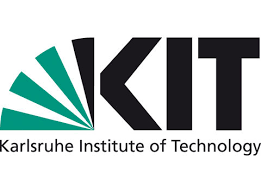Karlsruhe Institute of Technology Welcomes New President of Fraunhofer- Gesellschaft
Professor Holger Hanselka, President of Karlsruhe Institute of Technology (KIT) since 2013, was today unanimously elected the new President of Fraunhofer-Gesellschaft by the Senate of the Fraunhofer-Gesellschaft in Dresden. As its 11th president, Hanselka will succeed Professor Reimund Neugebauer.
Holger Hanselka heads the KIT in his second term. With a clear strategic orientation, he has succeeded in leading the KIT as the Research University in the Helmholtz Association back into the ranks of the universities of excellence. In addition, he consistently promoted the unity of KIT. “The success of the last few years has been a great joint effort. For this, I would like to thank the competent and highly committed Executive Board and management team and all employees of KIT,” emphasizes President Holger Hanselka. “My motivation has always been to make full use of the synergies of KIT as a nationwide unique institution in national and international competition. This applies in particular to research-oriented studies in Karlsruhe, because our future lies in young people and their ideas for solving the challenges of our time.”
Now that the talks and contract negotiations have been concluded, Hanselka is to become the 11th President of the Fraunhofer-Gesellschaft. “I am honored and pleased to have been given the trust of the Senate of the Fraunhofer-Gesellschaft. The office of Fraunhofer President with 30,000 employees worldwide is one of the most exciting and at the same time one of the most challenging in German science,” says Hanselka. “The international positioning and the development of a modern mission statement for Fraunhofer will be a key task, and I can contribute the valuable experience from my time at KIT, which I appreciate very much: We live in a time of massive global changes and challenges. Research with a clear-cut profile must also become more global in line with demand.”
“Professor Holger Hanselka is a strong leader and an outstanding science manager with determination, strategic vision, and a high level of team spirit. He has been strategically realigning KIT since 2023 and set the course for a successful future in national and international competition. Successes, such as in the Excellence Initiative or in the Program-oriented Funding of the Helmholtz Association, are visible signs,” says Chairman of the KIT Supervisory Board Professor Michael Kaschke. “Due to his many years of experience in the transformation and development of scientific institutions, Holger Hanselka is the right person to lead and successfully position the Fraunhofer-Gesellschaft in difficult times. That is a good decision for Germany as a place of science.”
Personal Data
Prof. Dr.-Ing. Holger Hanselka was born in Oldenburg 61 years ago. He studied general mechanical engineering at Clausthal University of Technology. He has been President of the Karlsruhe Institute of Technology (KIT) since 2013. From 2001 to 2013, he headed the Fraunhofer Institute for Structural Durability and System Reliability LBF in Darmstadt and was Vice President of the Technical University of Darmstadt. From 2006 to 2012, he was a member of the Executive Board of the Fraunhofer-Gesellschaft. Hanselka is an expert in knowledge and technology transfer, in cooperation between science and business, and in spinoff management, and is member of numerous national and international committees.
Being “The Research University in the Helmholtz Association”, KIT creates and imparts knowledge for the society and the environment. It is the objective to make significant contributions to the global challenges in the fields of energy, mobility, and information. For this, about 9,800 employees cooperate in a broad range of disciplines in natural sciences, engineering sciences, economics, and the humanities and social sciences. KIT prepares its 22,300 students for responsible tasks in society, industry, and science by offering research-based study programs. Innovation efforts at KIT build a bridge between important scientific findings and their application for the benefit of society, economic prosperity, and the preservation of our natural basis of life. KIT is one of the German universities of excellence.

